Understanding the Insurance Policy Lifecycle
Insurance policies can be complex documents filled with legal jargon and technical terms that may be difficult for the average consumer to understand. However, having a basic understanding of the insurance policy lifecycle can help individuals make informed decisions when purchasing and managing their insurance coverage.
- 12/14/2023
- 3 min read
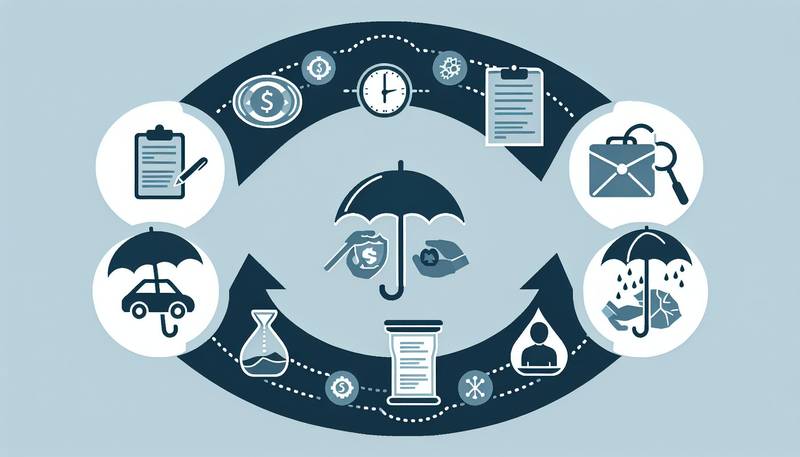 Click
to read the article
Click
to read the article
In this article, we will explore the stages of an insurance policy lifecycle and provide insights into how policyholders can navigate through each phase effectively.
Policy Inception
The policy inception stage marks the beginning of an insurance policy's lifecycle. During this phase, the insurance company and the policyholder enter into a contractual agreement outlining the terms and conditions of coverage. This typically involves the policyholder submitting an application, receiving a quote, and finalizing the policy details. It is crucial for policyholders to carefully review and understand the policy documents to ensure that they have the appropriate coverage for their needs.
Payment of Premiums
One of the key responsibilities of a policyholder is to pay premiums to maintain their insurance coverage. Premiums are the fees charged by the insurance company in exchange for the risk the insurer takes on by providing coverage. Policyholders must make timely payments to avoid a lapse in coverage, as this could result in the policy being canceled and potentially leaving them unprotected in the event of a claim. Understanding the payment schedule and methods accepted by the insurance company is essential to maintaining continuous coverage.
Policy Renewal
At the end of the policy term, policyholders have the option to renew their insurance coverage. This process typically involves reviewing the policy terms and making any necessary adjustments to ensure that the coverage still meets the policyholder's needs. Insurance companies may conduct a review of the policyholder's claims history and driving record to determine if any changes in risk have occurred. It is vital for policyholders to carefully consider any modifications to their coverage or shop around for alternative options to ensure they are getting the best value for their insurance needs.
Claims Processing
In the event of a covered loss or damage, policyholders can file a claim with their insurance company to seek compensation for the financial impact. The claims processing stage is a critical aspect of the insurance policy lifecycle, as it directly impacts the policyholder's ability to recover from a loss. Policyholders must adhere to the claims filing process outlined in their policy documents and provide the necessary documentation to support their claim. Working closely with the insurance company throughout the claims process can help expedite the resolution and ensure a fair outcome.
Policy Cancellation
There may be instances where policyholders need to cancel their insurance coverage before the policy term expires. Policy cancellation can occur for various reasons, such as moving to a new location, selling a vehicle, or finding a better insurance deal. It is essential for policyholders to understand the cancellation process outlined in their policy documents, as there may be financial implications or penalties for early termination. Policyholders should notify their insurance company in writing of their intent to cancel the policy and confirm the effective date of cancellation to avoid any confusion or potential disputes.
Conclusion
Understanding the insurance policy lifecycle is crucial for policyholders to effectively manage their coverage and make informed decisions throughout the policy term. By staying informed about the key stages of the insurance policy lifecycle, policyholders can navigate through the process with confidence and ensure they have the appropriate coverage to protect their assets and financial well-being. As insurance needs may evolve over time, it is important for policyholders to regularly review their coverage and work with their insurance provider to make any necessary adjustments. By taking a proactive approach to managing their insurance policies, policyholders can enjoy peace of mind knowing they are adequately protected against potential risks and uncertainties.
Recent posts
Random news

The Evolution of the Insurance Industry: A Historical Perspective
- 2024-03-01T00:00:00Z

Understanding Premiums, Deductibles, and Coverage Limits
- 2024-01-15T00:00:00Z

The Role of Underwriting in Insurance
- 2023-12-27T00:00:00Z

Exploring the Different Types of Liability Insurance
- 2023-12-11T00:00:00Z

The Benefits and Limitations of Whole Life Insurance
- 2024-03-06T00:00:00Z

An Introduction to Commercial Insurance for Business Owners
- 2024-02-02T00:00:00Z

Travel Insurance: Why It's Essential for Your Next Trip
- 2024-01-18T00:00:00Z

Renters Insurance: An Often Overlooked Necessity
- 2023-12-11T00:00:00Z

Pet Insurance: Is It Worth the Cost?
- 2023-12-30T00:00:00Z

Auto Insurance Essentials: What Every Driver Needs to Know
- 2023-12-14T00:00:00Z

Tips for Lowering Your Insurance Premiums
- 2023-12-30T00:00:00Z

Cyber Insurance: Protecting Businesses in the Digital Age
- 2024-02-04T00:00:00Z

The Importance of Disability Insurance in a Financial Plan
- 2024-01-27T00:00:00Z

Insurance and Natural Disasters: How to Protect Your Home
- 2023-12-19T00:00:00Z

The Impact of Technology on the Insurance Sector
- 2024-01-15T00:00:00Z

Critical Illness Insurance: What It Covers and Why It's Important
- 2023-12-29T00:00:00Z

Insurance Fraud: Detection, Prevention, and Consequences
- 2024-02-24T00:00:00Z

The Psychology Behind Insurance: Trust, Risk, and Decision Making
- 2023-12-30T00:00:00Z

The Global Insurance Market: Trends and Growth Opportunities
- 2023-12-14T00:00:00Z

The Intersection of Artificial Intelligence and the Insurance Industry
- 2024-02-12T00:00:00Z

Life Insurance: Securing Your Family's Future
- 2024-02-20T00:00:00Z

How Climate Change is Shaping the Insurance Industry
- 2024-03-08T00:00:00Z

Group Insurance Plans: Benefits for Employers and Employees
- 2024-02-09T00:00:00Z

Reinsurance Explained: How It Works in the Insurance Industry
- 2024-02-03T00:00:00Z
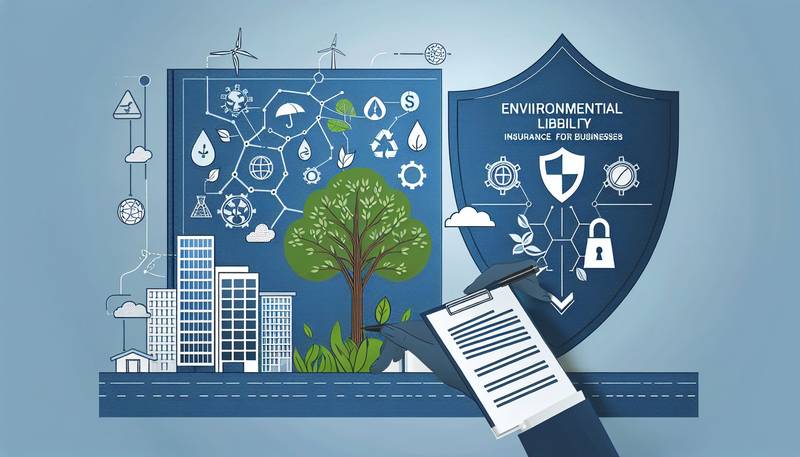
Environmental Liability Insurance: What Businesses Need to Know
- 2024-02-17T00:00:00Z

The Future of Insurance: Predictions and Innovations
- 2024-01-04T00:00:00Z

Insurance for Freelancers: Protecting Your Independent Career
- 2024-03-03T00:00:00Z

Annuities: Combining Insurance and Investment for Retirement
- 2024-03-17T00:00:00Z

Marine Insurance: Covering the Risks of Sea Transport
- 2024-01-28T00:00:00Z

Flood Insurance: Understanding Your Coverage Options
- 2024-02-03T00:00:00Z

The Role of Agents and Brokers in the Insurance Industry
- 2023-12-11T00:00:00Z

How Insurance Supports Economic Growth and Stability
- 2023-12-25T00:00:00Z

Vision Insurance: Seeing the Benefits Clearly
- 2024-02-22T00:00:00Z

Insurance Against Identity Theft: What You Need to Know
- 2024-02-07T00:00:00Z

The Rise of Telemedicine and Its Impact on Health Insurance
- 2024-03-17T00:00:00Z

Insurance in the Sharing Economy: Challenges and Solutions
- 2024-01-15T00:00:00Z

Digital Platforms Transforming the Insurance Buying Experience
- 2024-03-10T00:00:00Z

The Intersection of Blockchain Technology and the Insurance Industry
- 2024-03-07T00:00:00Z

Understanding the Insurance Policy Lifecycle
- 2023-12-14T00:00:00Z
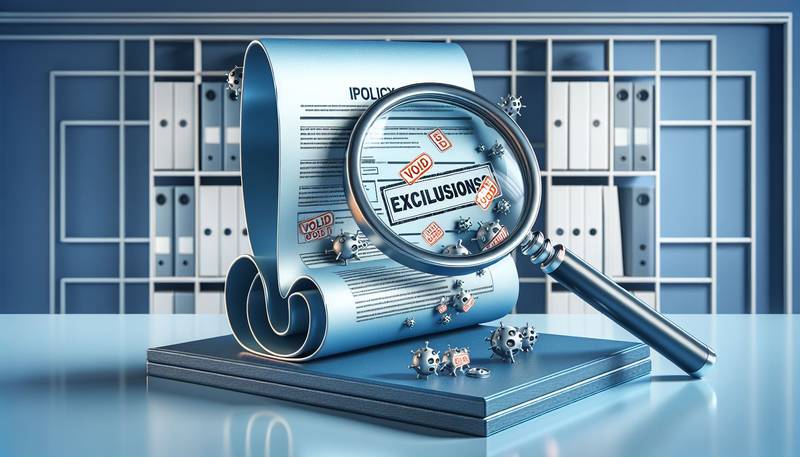
Understanding the Fine Print: Insurance Policy Exclusions
- 2024-02-11T00:00:00Z

Making Sense of Health Savings Accounts (HSAs) and Insurance
- 2024-03-12T00:00:00Z

Insurance and Public Health: A Complex Relationship
- 2023-12-27T00:00:00Z

Long-Term Care Insurance: Planning for the Future
- 2024-02-23T00:00:00Z

Insurance Literacy: Understanding Your Rights and Responsibilities
- 2024-02-10T00:00:00Z

Insurance for Young Adults: What You Need to Know
- 2024-01-04T00:00:00Z

The Changing Landscape of Life Insurance: Trends to Watch
- 2024-03-02T00:00:00Z

Insurance Claims: A Step-by-Step Guide to Filing and Settlement
- 2024-02-21T00:00:00Z

The Economics of Insurance: How Markets Operate
- 2024-02-21T00:00:00Z

Bridging the Gap: Insurance and Social Justice
- 2024-03-08T00:00:00Z

The Ins and Outs of Motorcycle Insurance
- 2023-12-17T00:00:00Z

The Legal Landscape of Insurance: Key Regulations and Challenges
- 2024-01-28T00:00:00Z

Directors and Officers Insurance: Safeguarding Corporate Leaders
- 2023-12-25T00:00:00Z

A Guide to Managing Insurance Costs in Small Businesses
- 2024-02-27T00:00:00Z

Insurance and Retirement Planning: A Comprehensive Approach
- 2023-12-20T00:00:00Z

Mobile Home Insurance: Coverage and Considerations
- 2023-12-27T00:00:00Z

Disaster Preparedness: The Role of Insurance in Recovery
- 2024-02-25T00:00:00Z

Navigating the Complex World of Health Insurance
- 2024-01-17T00:00:00Z

The Significance of Actuarial Reports in the Insurance Industry
- 2024-02-21T00:00:00Z

How Insurance Policies Are Priced: The Basics of Actuarial Science
- 2024-03-14T00:00:00Z

The Psychology of Insurance: How Coverage Affects Behavior
- 2024-01-01T00:00:00Z

Dental Insurance: Navigating Coverage and Care
- 2024-01-22T00:00:00Z

Umbrella Insurance: Extra Protection Beyond Standard Policies
- 2023-12-31T00:00:00Z

Specialty Insurance: Coverage for Unique Needs and Risks
- 2024-02-09T00:00:00Z

The Challenges and Benefits of High-Deductible Health Plans
- 2024-01-27T00:00:00Z

Understanding Coinsurance: What It Means for Your Wallet
- 2024-03-16T00:00:00Z

Crop Insurance: Supporting Farmers Through Uncertainty
- 2024-01-19T00:00:00Z

Navigating Insurance for Mental Health Services
- 2024-02-09T00:00:00Z

The Role of Insurance in Estate Planning
- 2024-01-23T00:00:00Z

How to Handle Insurance Claims Disputes
- 2024-01-21T00:00:00Z

Condominium Insurance: Understanding Policies and Protection
- 2024-03-09T00:00:00Z

Short-Term Health Insurance: Pros and Cons
- 2024-02-10T00:00:00Z

Understanding the Role of Insurance Adjusters
- 2023-12-25T00:00:00Z

Workers' Compensation: Ensuring Protection for Employees and Employers
- 2024-02-12T00:00:00Z

Healthcare Sharing Ministries vs. Traditional Health Insurance
- 2024-03-19T00:00:00Z

The Future of Autonomous Vehicles and Insurance Implications
- 2024-01-17T00:00:00Z

Gap Insurance: Closing the Coverage Gap in Auto Loans
- 2023-12-16T00:00:00Z

Antique and Collector Car Insurance: A Unique Protection
- 2024-01-13T00:00:00Z

The Impact of Regulatory Compliance on the Insurance Industry
- 2024-02-11T00:00:00Z

Disaster Insurance: Preparing for the Unexpected and Recovering Afterward
- 2024-01-01T00:00:00Z

Navigating the Insurance Marketplace: Strategies for Consumers
- 2024-03-14T00:00:00Z

The Role of Insurance in Disaster Response and Recovery
- 2023-12-12T00:00:00Z

Insurance and Ethics: Navigating Moral Dilemmas in the Industry
- 2023-12-31T00:00:00Z

Maximizing Benefits: Strategies for Effective Insurance Utilization
- 2024-02-05T00:00:00Z


Insurance for Nonprofits: Special Considerations and Needs
- 2024-01-24T00:00:00Z

The Future of Insurance: How Technology is Shaping Coverage and Customer Service
- 2024-02-19T00:00:00Z
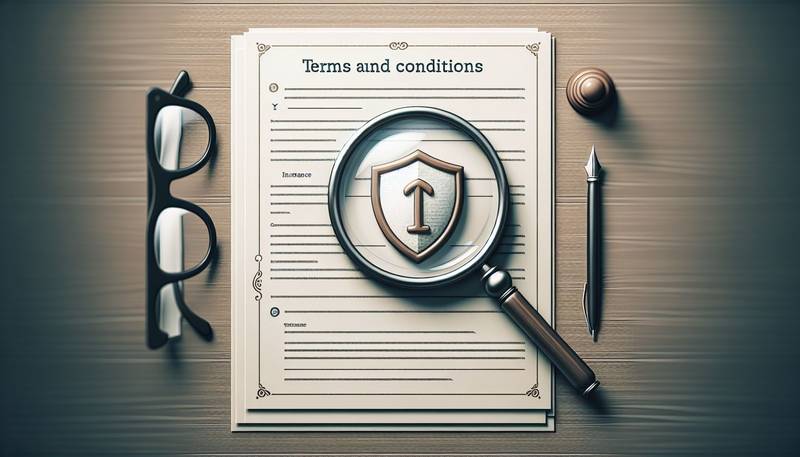
Understanding the Fine Print: Key Terms and Conditions in Insurance Policies
- 2024-02-06T00:00:00Z

Life Insurance: Securing Your Family's Future in Uncertain Times
- 2024-02-04T00:00:00Z

Peer-to-Peer Insurance: A New Model for Sharing Risk
- 2024-01-03T00:00:00Z

Navigating the Maze: Choosing the Right Insurance Policy for Your Needs
- 2024-02-26T00:00:00Z

Commercial Insurance: Protecting Your Business from Unseen Risks
- 2024-01-10T00:00:00Z

Insurance and Customer Experience: The Journey to Satisfaction
- 2024-01-24T00:00:00Z

The Evolution of Insurance: From Ancient Times to the Digital Age
- 2024-02-16T00:00:00Z
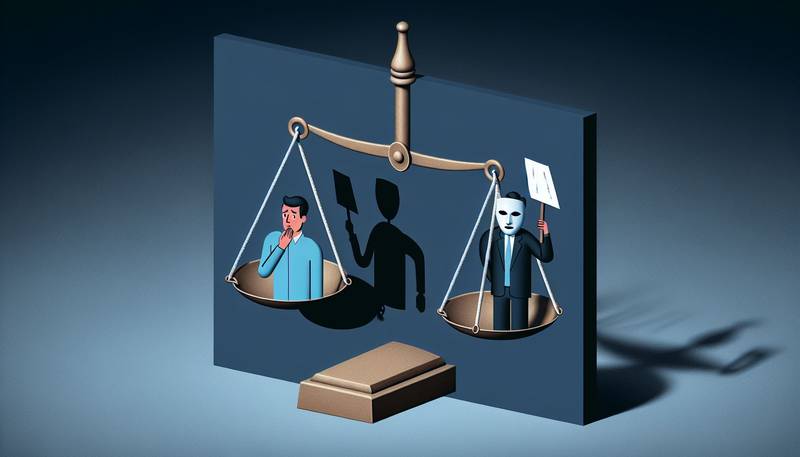
Insurance Fraud: The Impact on Policyholders and How to Protect Yourself
- 2024-02-13T00:00:00Z

Health Insurance Explained: What You Need to Know to Protect You and Your Family
- 2024-03-06T00:00:00Z

Auto Insurance: Tips for Choosing the Right Coverage and Saving Money
- 2024-01-30T00:00:00Z

Supplemental Insurance: Filling the Gaps in Coverage
- 2024-01-26T00:00:00Z

How to Choose the Right Insurance Policy for Your Needs
- 2024-01-30T00:00:00Z

The Role of Insurance in Mitigating Financial Risk
- 2023-12-06T00:00:00Z

Understanding the Basics of Insurance: A Beginner's Guide
- 2024-03-04T00:00:00Z
 InsurePath: Navigating Your Way to Peace of Mind
InsurePath: Navigating Your Way to Peace of Mind